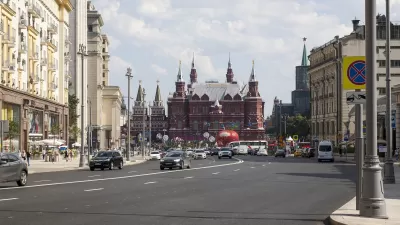Japan was not the only nation to shutter its nuclear power plants after the March 11, 2011 Fukushima earthquake and tsunami. Germany followed suit. Consequently, both nations have seen a dramatic increase in coal burning, thus increasing emissions.
Aaron Wiener writes that in the aftermath of the Fukushima disaster, Germany's greens cheered when the government "shut down half the country's nuclear reactors followed two months later by a pledge to abandon nuclear power within a decade"
The results have been anything but green though.
"To make up for the lost nuclear power, which supplied 22% of Germany's electricity before the phaseout began, the country has increased its reliance on brown coal, a particularly high emitter of carbon dioxide into the atmosphere and a major contributor to global warming. Brown coal now supplies 25% of Germany's electricity, up from 23% a year ago."
Wiener reports that although environmentalists supported the decision to shutter the plants, they've taken issue with how it's been executed.
"We have a government where half of the administration does not agree with the starting point that the phasing-out program was the right thing to do," said Cem Oezdemir, co-chairman of Germany's Green Party. "So what you can see is that the second part after you decided to phase out, that you change your electricity structure and that you have a master plan for energy policy, that never was really agreed upon."
Richard Mathews writes in Global Warming is Real that "after the Fukushima incident, Japan closed almost all of their nuclear facilities to conduct safety checks. It is very unlikely that these nuclear reactors will be restarted."
"Japan's nuclear power used to generate almost one third of the country's power. Presently, only 2 of Japan's 54 reactors are operational, and to make up for the energy shortfall, the country is increasingly turning to fossil fuels." The result is an expected 5% increase in greenhouse gas emissions.
Thanks to David Frink
FULL STORY: Germany's nuclear power phaseout turns off environmentalists

Americans May Be Stuck — But Why?
Americans are moving a lot less than they once did, and that is a problem. While Yoni Applebaum, in his highly-publicized article Stuck, gets the reasons badly wrong, it's still important to ask: why are we moving so much less than before?

Study: Maui’s Plan to Convert Vacation Rentals to Long-Term Housing Could Cause Nearly $1 Billion Economic Loss
The plan would reduce visitor accommodation by 25,% resulting in 1,900 jobs lost.

Placekeeping: Setting a New Precedent for City Planners
How a preservation-based approach to redevelopment and urban design can prevent displacement and honor legacy communities.

San Diego Swaps Parking Lane for Kid-Friendly Mini Park
The block-long greenway will feature interactive play equipment and landscaping.

Tracking the Invisible: Methane Leaks From LA’s Neighborhood Oil Sites
Environmental advocates are using infrared technology to monitor and document methane leaks from neighborhood oil sites, filling regulatory gaps and pushing for stronger protections to safeguard community health and the climate.

Montana Bill Promotes Parking Reform
A bill before the Montana state senate would bar cities from requiring more than one parking spot per new housing unit.
Urban Design for Planners 1: Software Tools
This six-course series explores essential urban design concepts using open source software and equips planners with the tools they need to participate fully in the urban design process.
Planning for Universal Design
Learn the tools for implementing Universal Design in planning regulations.
Caltrans
Heyer Gruel & Associates PA
Institute for Housing and Urban Development Studies (IHS)
City of Grandview
Harvard GSD Executive Education
Salt Lake City
NYU Wagner Graduate School of Public Service
City of Cambridge, Maryland



























